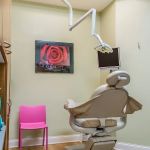
What Are the Signs of an Infected Dental Implant? Symptoms You Should Know
- Understanding Dental Implant Infections
- Common Symptoms of an Infected Dental Implant
- What Causes Dental Implant Infections?
- Preventive Measures to Avoid Infection
- Treatment Options for an Infected Dental Implant
- Case Studies: Real-Life Dental Implant Infections
- Conclusion: Taking Action to Protect Your Implants
Dental implants are a popular and effective solution for replacing missing teeth. However, like any medical procedure, they come with potential risks, including infection. An infected dental implant can lead to complications such as implant failure, gum disease, and even bone loss. Understanding the signs of infection early can help prevent further damage and ensure successful treatment.
Common Symptoms of an Infected Dental Implant
Recognizing the signs of an infected dental implant is crucial for preventing complications. Some common symptoms include:
- Pain and Swelling: One of the first signs of infection is persistent pain around the implant area. Swelling of the gums or face is also a common symptom.
- Redness and Warmth: The gum tissue surrounding the implant may appear redder than usual, and you may feel warmth when touching the area.
- Pus or Discharge: If you notice a foul-smelling discharge or pus around the implant, it is a clear indication of infection.
- Loose Implant: If the implant feels loose or shifts, it could mean that the infection is affecting the stability of the implant.
- Bad Breath (Halitosis): Persistent bad breath can be a sign of an infection that is not properly healing.
- Bleeding Gums: Infected implants may cause the gums to bleed, especially when brushing or eating.
If you experience any of these symptoms, it is important to consult with your dentist or oral surgeon immediately. Prompt treatment can help prevent the infection from spreading and affecting the surrounding tissues.
What Causes Dental Implant Infections?
There are several reasons why a dental implant may become infected. The most common causes include:
- Poor Oral Hygiene: Failing to maintain proper oral hygiene can lead to bacteria buildup around the implant, resulting in infection.
- Smoking: Smoking can impair healing and reduce blood flow to the gums, making it more difficult for the body to fight infection.
- Underlying Health Conditions: Conditions like diabetes, autoimmune disorders, or any condition that affects the body's ability to heal can increase the risk of infection.
- Overloading the Implant: Placing too much pressure on the implant, such as chewing hard foods or grinding teeth, can cause inflammation and infection.
- Unsuccessful Implant Surgery: Infection may occur if the implant was not placed correctly or if there was contamination during the surgery.
Understanding the causes can help you take proactive steps to minimize the risk of infection and ensure the success of your implant.
Preventive Measures to Avoid Infection
Preventing an infection before it starts is the best approach. Here are a few tips to reduce your risk:
- Maintain Excellent Oral Hygiene: Brushing and flossing regularly is essential to remove plaque and bacteria that can cause infections.
- Avoid Smoking: Quitting smoking or avoiding it after surgery can significantly improve healing and reduce the risk of infection.
- Regular Dental Checkups: Visit your dentist regularly to ensure that your implants are healthy and free of infection.
- Follow Post-Surgery Care Instructions: Your dentist will provide specific care instructions after the implant procedure, including how to clean the area and avoid stress on the implant.
- Manage Underlying Health Issues: If you have any chronic health conditions, be sure to follow your doctor’s advice to manage them and reduce the risk of complications.
Taking these preventive measures can go a long way in ensuring the long-term health and success of your dental implants.
Treatment Options for an Infected Dental Implant
If an infection is detected, prompt treatment is crucial to save the implant. Here are common treatment options:
- Antibiotics: If the infection is caught early, antibiotics may be prescribed to clear up the infection and allow the implant to heal.
- Cleaning and Debridement: A deep cleaning of the implant area may be necessary to remove infected tissue and bacteria.
- Implant Removal: In severe cases where the infection is too advanced, the implant may need to be removed, and the area may need to be treated before re-implantation.
It's important to note that early intervention is key. The sooner an infection is treated, the higher the chances of saving the implant and preventing further complications.
Case Studies: Real-Life Dental Implant Infections
Here are a couple of real-life stories that highlight the importance of recognizing an infected dental implant early:
Case 1: Jane, a 45-year-old woman, noticed swelling and pain around her dental implant two weeks after the procedure. She immediately visited her dentist, who prescribed antibiotics. The infection was caught early, and her implant was saved with no further issues.
Case 2: Tom, a 60-year-old man, ignored mild discomfort around his implant for months. By the time he sought treatment, the infection had spread, and his implant had to be removed. He learned the importance of early detection and now follows strict oral care routines to avoid similar issues in the future.
These stories demonstrate that prompt action can make a significant difference in the outcome of your dental implant treatment.
Conclusion: Taking Action to Protect Your Implants
Knowing the signs of an infected dental implant is crucial to ensure the success of your treatment. If you experience any symptoms of infection, it’s important to seek dental care immediately. With proper preventive measures and timely treatment, you can enjoy the benefits of a healthy, functional implant for years to come.
For more information on how to care for your dental implants and prevent infection, visit Dentistry Toothtruth for expert advice and solutions.







 Dr. Jim O. Taylor5.0 (15 review)
Dr. Jim O. Taylor5.0 (15 review) Clark Pediatric Dentistry5.0 (4 review)
Clark Pediatric Dentistry5.0 (4 review) Dr. Omid R. Kashani, DDS - Dental Care 2000 Plus, Monrovia4.0 (19 review)
Dr. Omid R. Kashani, DDS - Dental Care 2000 Plus, Monrovia4.0 (19 review) The Better Sleep Dentists5.0 (2 review)
The Better Sleep Dentists5.0 (2 review) Dr. Dental: Dentistry & Braces4.0 (459 review)
Dr. Dental: Dentistry & Braces4.0 (459 review) Mortenson Family Dental4.0 (578 review)
Mortenson Family Dental4.0 (578 review) The Importance of Oral Health Education During Pregnancy for a Healthy Pregnancy
The Importance of Oral Health Education During Pregnancy for a Healthy Pregnancy Best Tips for Brushing Your Teeth Properly for Healthy Gums: Essential Techniques for Oral Health
Best Tips for Brushing Your Teeth Properly for Healthy Gums: Essential Techniques for Oral Health Why Skipping Dental Checkups Can Lead to Bigger Oral Health Problems
Why Skipping Dental Checkups Can Lead to Bigger Oral Health Problems Advantages of Porcelain Dental Restorations
Advantages of Porcelain Dental Restorations How Can Diabetes Cause Tooth and Gum Problems? Preventing and Managing Oral Health Issues
How Can Diabetes Cause Tooth and Gum Problems? Preventing and Managing Oral Health Issues Healthy Habits for Promoting Good Oral Health and Hygiene: Tips for a Healthy Smile
Healthy Habits for Promoting Good Oral Health and Hygiene: Tips for a Healthy Smile